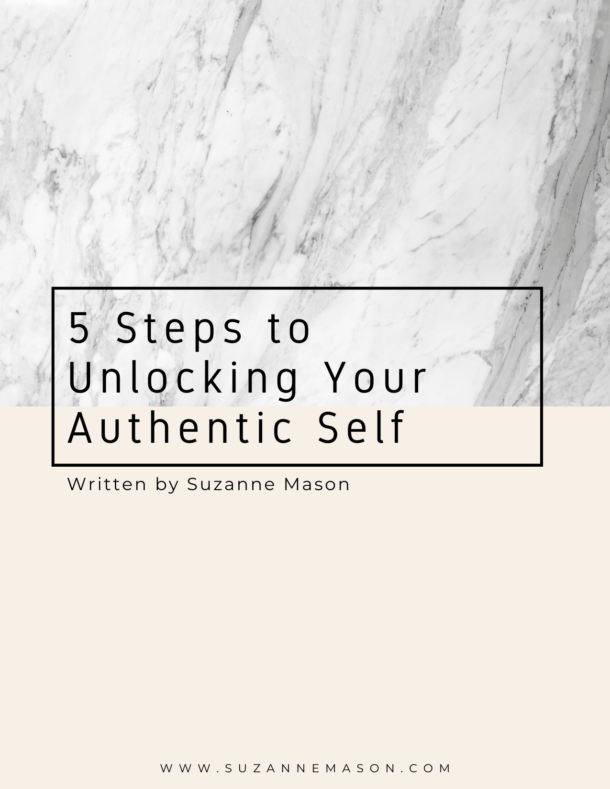PASSION & IDENTITY
Passion or Obsession: How Does One Become the Other?
14 October 2019
Part of our identity is being passionate about something. It could be a cause, a career, side projects, healthy lifestyle, fashion etc. In today’s society especially, it is all about “Find your passion!” but yet many of us simply do not have things we are, well, particularly passionate about.
Even when we do uncover or discover our passion, what can start off as motivating and positive could sometimes become an obsession that we cannot control. What happens when your passion takes over your life becomes more detrimental than positive?
Most importantly, how can you dial back your obsession so that you can enjoy your passion again? Find out 4 ways to do so here.
For years, I felt like I was fleeting from interest to interest that I dabbled in but did not commit to. I was simply not passionate about anything long enough to want to spend my time and effort willingly. In my early twenties I discovered I was really into behavioural science and how we can use our own psychology to know ourselves better and improve our own lives as a result. It was a revelation, at long last, I had discovered my passion!
To be fair, I wish I could say that my passion and I went on to live happily ever after but life does not always give you a direct route and it took me another few more years before I could focus and dedicate my time fully.

The Power of Passion: From Climate Change to Girls’ Right to Education
Many of us feel like life gets pretty pointless when we are not passionate about anything. Without passion, we are just doing mundane things to spend our time. Without passion, it seems like we are unable to find people who are into the same stuff and thus we get lonely as well as question the purpose of our existence. Sound familiar to you?
Many people feel like passion should be this huge thing we put a ring on and commit ourselves to immediately. But in reality, passion starts of as an interest and over time, the more we push ourselves to practice, to do more of an activity that we are interested in, the passion grows.
When we think about passion, we generally think about what it is that we are so interested in that we are willing to commit our time and energy to it. Like Greta Thurnberg whose passion is about the protection of our environment, we are in awe that a young lady has found her passion and has begun to accomplish great things with it.
Or like Malala Yousafzai who championed girls’ rights to education in Pakistan and was shot in the head as a result of her passion. In this way, we tend to view passion as something that defines a person and something that is remarkable, something that has a huge purpose behind it, something one might sacrifice for, something that has the power to create a legacy or change the lives of the person wielding that passion and the lives of others touched by this passion.
Passion in this context seems amazingly positive but there is always more than one angle to view something and the same can be said about passion.
Two Sides of Passion: The Dualistic Model of Passion
Robert Vallerand, a psychologist, conceptualised the Dualistic Model of Passion. In this model, Vallerand suggests that there are two types of passion. One is a harmonious passion and the other, obsessive passion. Harmonious passion occurs when the activity is internalized autonomously into a person’s identity and obsessive passion comes from a controlled internalization of the activity into the person’s identity.
An autonomous internalization happens when a person freely participates in an activity of their own choosing. Their interest in this activity comes from their intrinsic motivation, this kind of passion is compatible with their values in life and co-exists harmoniously with the other domains of a person’s life. When you are doing something is in the harmonious passion zone you feel happy, joyful, accomplished and even get in the flow doing the activity.
In contrast, a controlled internalization however represents an uncontrollable urge to carry out an activity with the person feeling like he has no choice and he will continue to participate even if it means compromising other parts of his life. Even though he might be good at the activity, he does not feel the same kind of joy because this activity has become a compulsion and not from free will.
This kind of rigid obsession does not exist compatibly with other parts of the person’s life and will become a non-negotiable part of a person’s identity, possibly even taking over the whole identity.
When a Passion for Healthy Living Becomes an Obsession
Working out and dieting is a good example of how it can be a harmonious passion for some but obsessive passion for others. You might have started off with an interest for healthy living. You start working out regularly and eating better and over the next few weeks or months, you start to feel fantastic. You’ve lost some weight, tone up that butt and you have so much energy it’s positively irksome to some people. Over time however, you start to obsess over the quality of food you are eating, it must be vegan, nothing else. You also obsess over the intensity of your workouts and if you are not left slightly crippled at the end, it was not a good workout.
In time, the need to work out even more intensely than before and eat only certain types of food at certain times overpowers you and you develop rigid rules around these things. You even drag yourself to the gym when you can barely stand from your sore muscles! You start to miss family events, date nights, things that used to be fun for you so that do not miss any workouts and because you fear eating anything other than the acceptable food.
Suddenly, the passion for healthy living has turned into an uncontrollable obsession over the activities associated with your version of healthy living. Over time, this rigid need to work out and to eat in way acceptable to you becomes your sole focus and you start to miss out on other things and people in your life because you can’t control your need to be always participating in your passion.
When you try to stop yourself from participating in the activity that you are obsess with, you find yourself feeling guilty and anxious for not doing it. At the same time, because this kind of obsession is not rational, you are ashamed of even talking about it with others or acknowledging the fact that you have an issue.
When I was 14 years old, I was exactly like this with working out and dieting. Like many teenage girls, I wanted to be slimmer and I was keen on boosting my fitness levels. At first I started to work out a few times a week and then I started to work out everyday, the workouts went from an hour to two hours. I started controlling my food portions and made up rules around it like only eating at 6am and at 6pm so I had 12 hours in between even though I was ravenous.
I was obsessed about working out at a specific time and would get really upset if I had to miss it though I made it up. I didn’t want to eat anything other than what I prepared. My passion had turned into an obsession in the end but eventually I stopped myself from going in even deeper and my passion for working out and eating well returned and I could balance this in with other parts of my life.
Here are four ways to help yourself from letting your passion take over your life:
- Do not mistake competence for harmonious passion
When we are good at something, we tend to mistake it for an interest or passion we must stick to. This happens a lot at work. You might be a highly organised person and so people rely on you to get things together at work such as events, administrative matters. Though you are good at it, these tasks aren’t exactly your forte. Remember, passion is something you are interested in doing, not just what you are good at.
- Recognise that this passion of yours is only a portion of who you are, not all of you
Your identity is so much more than just your passion. Many people we see who burn out quick are those paralysed by hinging their entire sense of self on the one thing, what they are passionate about or what they do for a living. Your passion must co-exist with the rest of you and not take over your entire person.
- Reconfigure how you would adapt this passion so that it is compatible with the rest of your life
Passion in itself can be really good for you. Studies have shown that people with passionate endeavours, i.e. projects and causes that are meaningful to them are happier and more satisfied with their lives. So, don’t simply get rid of your passion just because it seems obsessive now. If it is something that is still a passion for you and brings you joy when you do it, find a way to incorporate it back in your life. For example, back to the health and fitness obsession. I found that when I scaled back and enjoyed everything in moderation, I was able to see the workouts and the healthy food as harmonious passion, not obsessive.
- Give yourself a break from it, try other things
Give yourself the permission to stop doing whatever you are obsessed with. When people carry out activities they are obsessively passionate about, very often it is because they feel obligated to do so. The obligations might have come from others but mostly from ourselves. We do not give ourselves the permission to take a break from things when they become overwhelming. Instead we feel ashamed about “quitting” and anxious about not doing it. You do not owe anyone an explanation, if it becomes too much and you no longer feel joy doing it, take a break from it, try other stuff.
Conclusion
At the end of the day, we all need passion in our lives. It is human for us to want to be excited about stuff, to try new things and to master them. But the truth is, when we push ourselves to the brink about seeking and living our passion, we end up hurting ourselves instead.
It is not easy to change our passion from obsessive to harmonious because it is after all ingrained into our identity. It helps us define who we are and we are reluctant to let go or change what is fundamentally us. But, you can absolutely do it.
Now, to you. What do you think about your passions in life? Are they taking over your life or do they help you be a better person? Let me know in the comments.
*Source of dualistic models of passion: https://psywb.springeropen.com/articles/10.1186/2211-1522-2-1
Want to know who you truly are?
Sign up now for a free ebook to unlock your authentic self in 5 steps.


